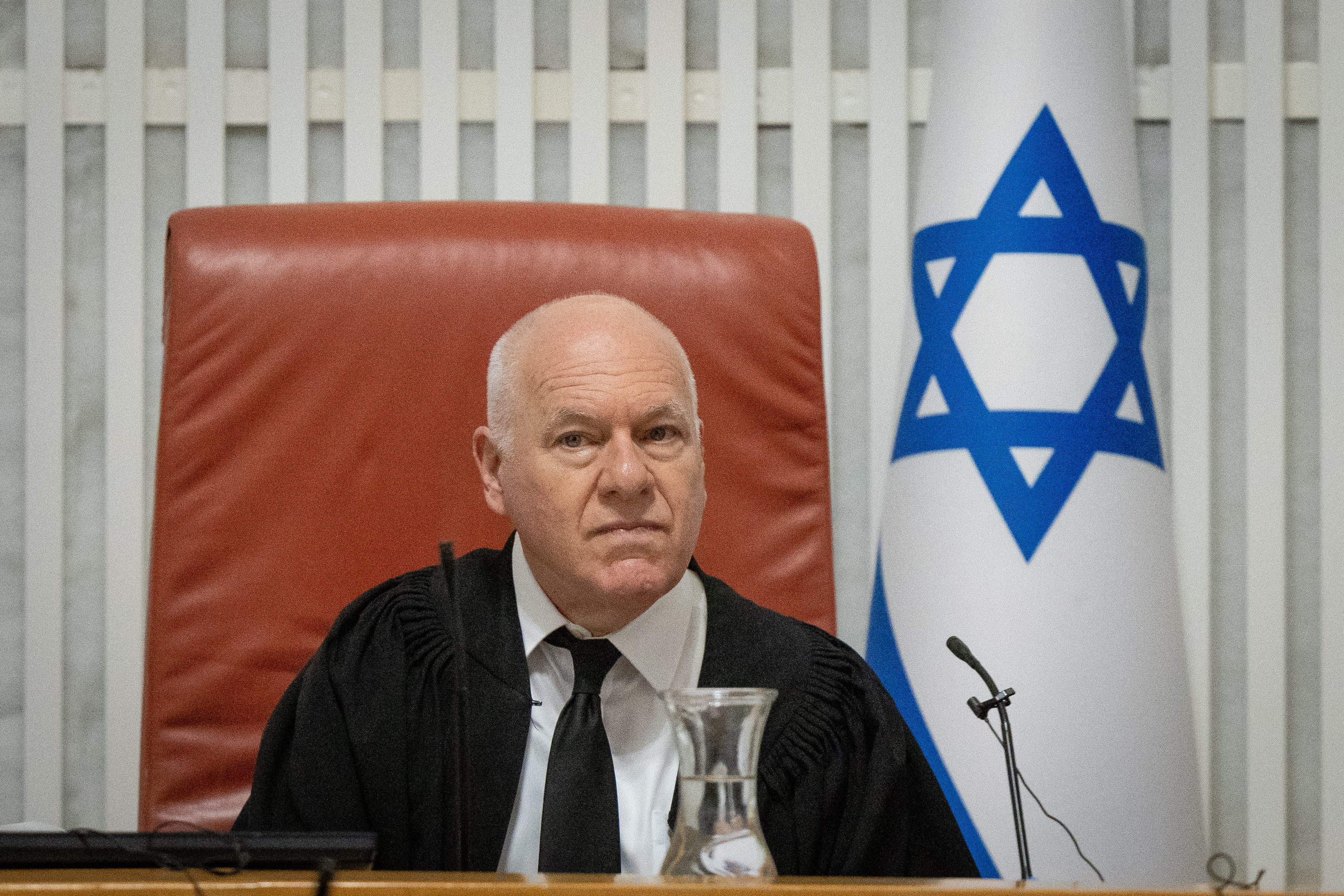Special State of Emergency in Israel’s Court System
A "special state of emergency" has been applied over the years due to security crises and throughout the COVID pandemic. How does this affect the regulation of the courts and the power of the Minister of Justice?

Photo by Yonatan Sindel/Flash90
Following the attack by Hamas on October 7, 2023, and in light of the state of war in Israel since then, courts throughout Israel have been operating on an emergency basis known as a “special state of emergency.” Minister of Justice Yariv Levin declared this special state of emergency in a published statement. The Judicial Authority announced that the minister’s declaration was made with the agreement of the president of the Supreme Court and the director of the courts. The first declaration was issued on October 7 and its validity subsequently expired, as did the validity of a second announcement made on October 8. A third announcement was published on October 12, valid through to 8 a.m. on October 20.
Other judicial bodies have also shifted to a similar emergency operating status, based on other regulations that apply to them, such as the National Labor Court and various religious courts (including the rabbinical courts and the Sharia courts).
The power of the justice minister to declare a special state of emergency in the courts is founded on regulations issued by the justice minister in 1991. The Courts Law empowers the justice minister to institute regulations regarding civil procedure in the courts, and in general states that the minister of justice is charged with the implementation of this law, which regulates the functioning of the courts in Israel. On the basis of the Courts Law, the regulations concerning a special state of emergency in the courts were passed by the justice minister during the Gulf War.
The Courts Regulations set down several special judicial arrangements that apply if the minister of justice announces a special state of emergency (as stated, Minister Levin published such an announcement several days ago).
A “special state of emergency” is defined in these regulations as “a situation in which normal patterns of life are disrupted in all or part of the State of Israel due to a security situation, to substantial fears of severe harm to public health, or to a natural disaster.”
Over the years, ministers of justice have applied these regulations in defined areas in Israel due to previous security crises, such as the rounds of fighting between Israel and the Gaza Strip, and throughout the country during the COVID pandemic (when the regulations were amended so that they could also be applied during health emergencies).
During a special state of emergency the activity of the courts is curtailed, and only urgent cases are heard, as detailed in the regulations, such as arraignment hearings or urgent petitions to the High Court of Justice. The president of the Supreme Court is responsible for deciding whether a particular petition to the High Court of Justice is urgent.
It should be noted that emergency regulations issued by the government due to the current war empower the justice minister, over the coming month, to expand the possibility of holding arraignment hearings—which, as stated, are considered urgent proceedings—without the physical presence of the defendant in court, and instead of using technological means to enable the appearance of the accused.
The regulations give the court system the power to apply a certain level of judgement regarding which cases are heard. Thus, court presidents can use their discretion to decide that certain proceedings that fall into the categories described in the regulations will not be brought before the court, or that a certain case that is not in those categories will indeed be heard. Similarly, the regulations empower the director of the courts to define additional types of proceedings that will be heard in court during a special state of emergency.
In the context of the powers of court presidents during a special state of emergency, it is important to note that as of the date of retirement of Supreme Court President Justice Esther Hayut, on October 16, 2023, due to the refusal of the minister of justice to convene the Judicial Selection Committee to appoint a replacement, the president’s duties will be fulfilled by the deputy president, Justice Uzi Vogelman.
During the COVID-19 pandemic, the Association for Civil Rights in Israel petitioned against the announcement by the then-minister of justice that the special regulations would be applied, and against the validity of the regulations themselves, arguing that any restriction on the operation of Israel’s courts should be set down in primary legislation by the Knesset, since it entails infringement of the principles of separation of powers and rule of law, and infringement of the right to access to courts.
In April 2020, the Supreme Court dismissed this petition (without prejudice to the petitioner’s right to reapply), based on the state’s agreement to review (after the pandemic) the question of anchoring the power to issue these regulations in primary legislation by the Knesset (without any obligation to actually pass such legislation following this review). No such legislation was put forward.
(More information can be found in the following article: https://iacajournal.org/articles/10.36745/ijca.383.)
